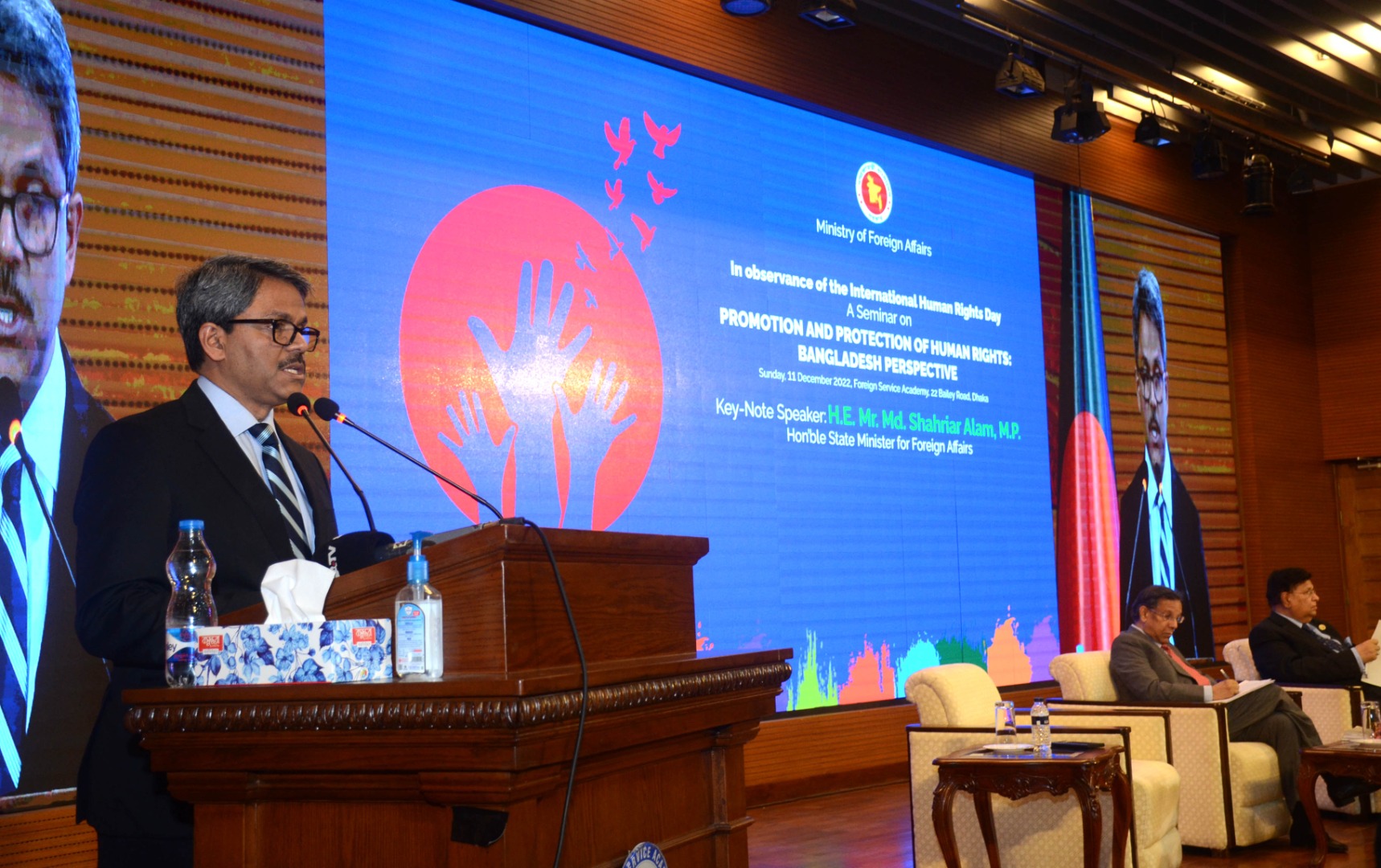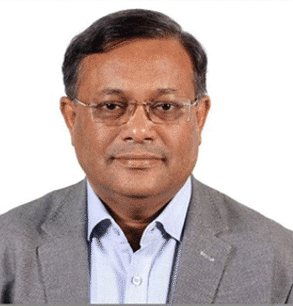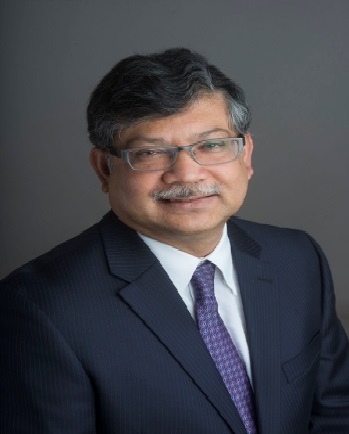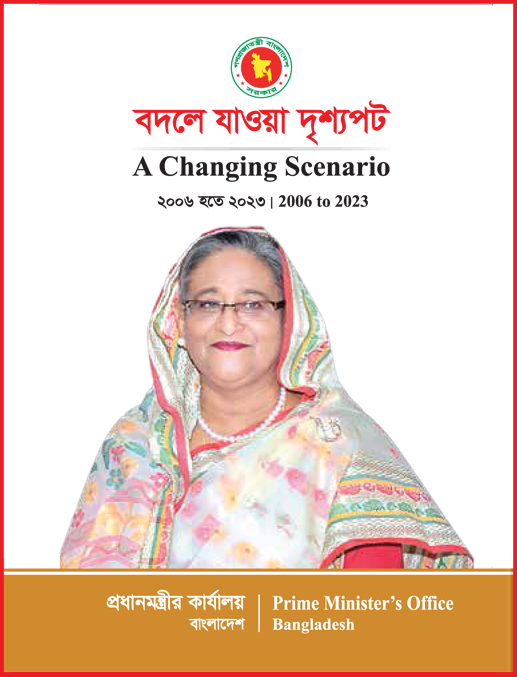Key Note Speech by Hon’ble State Minister for Foreign Affairs Md. Shahriar Alam, MP delivered at the Seminar on “Promotion and Protection of Human Rights: Bangladesh Perspective” held on 11 December 2022 at Foreign Service Academy, Dhaka.

Hon’ble Foreign Minister Dr. A K Abdul Momen MP,
Hon’ble Minister for Law, Justice, and Parliamentary Affairs Anisul Huq,
Hon’ble Members of Parliament,
Distinguished Speakers,
Excellencies,
Heads of Bangladesh Mission Abroad connected Virtually,
Esteemed representatives from academia, civil society and media,
Ladies and Gentlemen,
A very good afternoon to you all.
At the outset, I thank you all for your presence here today. Yesterday, 10 December, has been the International Human Rights Day. 74 years ago, in 1948 on this very Day, the United Nations General Assembly in Paris adopted the Universal Declaration of Human Rights (UDHR), a milestone document in the history of human rights.
At multilateral arena today, the UN Mechanism on Human Rights is facing huge challenges. The Human Rights Council, the prime inter-governmental organ of the UN on human rights, could not deliver at its expected level since its inception. Indeed, this is following the path of its predecessor, the UN Commission on Human Rights (UNCHR). In our perspective, human rights agenda continues to remain as the most neglected domain in the works of the UN, principally due to the impasse created by the politicization of the human rights agenda by a handful of countries. Targeting developing countries with undue political pressure has so far been their core agenda, including through a number of politically motivated civil society organizations. Thus, the multilateral intergovernmental nature of the UN Human Rights Mechanism is seriously being undermined. Due to this, many important thematic and country-specific situations that need immediate attention of the global community are being sidelined for years. Alarmingly, we are witnessing a further intensification of this scenario due to the current geo-political scenario in the world.
Distinguished audience,
Bangladesh, as a country that has emerged from decades-long struggle of its people against discrimination, oppression, dictatorship and injustice, the promotion and protection of human rights and fundamental freedom is indeed its raison d’etre. Father of the Nation Bangabandhu Sheikh Mujibur Rahman dreamt of an independent nation free of exploitation, discrimination and inequality, and ensured to reflect this ethos in our National Constitution. As a result, Bangladesh is one of few countries that have constitutional guarantee of safeguarding human rights and fundamental freedom of its citizens. This is something which is, unfortunately, very often forgotten by many of us including our international friends. Following the ideological path set by the Father of the Nation and under the visionary leadership of Hon’ble Prime Minister Sheikh Hasina since 2009, Bangladesh has made remarkable progress, through adopting a whole-of-society approach in the promotion, protection and mainstreaming of human rights, including civil, political, economic, social and cultural rights, for its people. Our Government is relentlessly working to uphold the democratic norms and principles, rule of law, and civil liberty. I am sure that the distinguished speakers today would touch upon many aspects of this remarkable progress. However, I would like to touch upon few areas, specially covering the economic, social and cultural rights which, like other developing countries, are priorities for us.
1) Firstly, we recall that Bangladesh acceded to the International Covenant on Economic, Social and Cultural Rights (ICESCR) in 1998 under the leadership of Hon’ble Prime Minister Sheikh Hasina. Since 2009, Bangladesh is experiencing remarkable socio-economic progress, which has enabled fulfilment of all basic rights of our people, including food, housing, education, healthcare etc. Enormous number of projects has been undertaken in these sectors. Indeed, Bangladesh already achieved impressive development milestones including graduation from the LDC group. Poverty rate has been reduced in half during the period of last 16 years (2005 to 2021). The rate of poverty declined from 31.5% to 20.5% from 2010 to 2020. Life expectancy increased to 71.6 years. According to the Spectator Index, Bangladesh recorded the highest GDP growth in the world during the last decade with a cumulative growth of 188% of its economy since 2009. Bangladesh has maintained over 6% growth for last decade. The only other period when Bangladesh’s gross GDP experienced such growth was during the period of Bangabandhu (1972-1975), when it almost tripled from $94 to $278. Having the underlying philosophy of protecting people's rights, ensuring accountability, and delivering citizen-centric services through technology, the Government undertook ‘Digital Bangladesh’ initiative, that saw over 100 million internet subscribers in the country today. Bangladesh considers that right to information is an inalienable part of freedom of thought, conscience, and speech.
2) Secondly, to empower women, the Government increased women’s reserved seats in national parliament to 50; earmarked 30% seats in local government bodies; ensured gender-sensitive budgeting, special loans, micro-finance and similar initiatives for women's financial inclusion. To prevent and redress violence against women and children, the Government framed a robust legal framework, through enacting the Women and Children Repression Prevention Act, the Domestic Violence (Prevention and Protection) Act; Human Trafficking (Deterrence and Suppression) Act, Pornography Control Act, Children Act, Child Marriage Restraint Act and Dowry Prohibition Act, ensuring full implementation thereof. In Bangladesh, women have greater participation in legislation, administration, judiciary, and civil society. As per Gender Gap Report 2022 of the World Economic Forum, Bangladesh closed 71.4% (as opposed to 63% in 2006) of its overall gender gap and ranked the top in South Asia by performing the best in bringing down gender gap.
3) Thirdly, in line with its commitment to uphold labour rights and ensure workplace safety, the Govt. adopted an action-oriented time-bound road map on the Labour Sector reform (2021–2026). Also, the elimination of child labour by 2025 is a priority for the government. RMG and Shrimp sectors are free from child labour. Child labour has been prohibited in 43 hazardous jobs and more than 100,000 children have been removed from hazardous jobs and rehabilitated. New projects have been taken to rehabilitate more children from hazardous jobs. The GoB has taken Sheikh Russell Child Training and Rehabilitation Centre Project which is directly working with street children, labor children along with children deprived from parental care, trafficking escaped children, children victim of violence and lost children. Through this project the Government provides education as well job-oriented training and rehabilitation facilities to these children till they become eighteen.
4) Fourthly, the Government has initiated Online Birth Registration System (BRIS) in the country since October 2010 and gradually moving away from the manual system. All over the country, 4571 union council, 319 municipality, 15 cantonment board and 124 zonal offices of 11 city corporations total 5029 register office and in aboard there are 53 registrar office of Bangladesh missions in 42 countries subtotal 5082 register office are doing online birth & death registration.
5) Fifthly, to promote the rights of persons with disability, the Government has reserved 1% quota for the persons with disabilities in first class Government job and 10% in 3rd and 4th class jobs. The Government adopted more than 13 legislations, rules and policies to ensure the rights of the persons with disabilities. Significant initiatives such as brail system books for blind students have also been taken.
6) Sixthly, social safety net programs have been introduced for the vulnerable and marginalized sects of the population. The Government formulated ‘National Social Security Strategy Paper’ in 2015 to reflect the far-reaching vision of the Hon’ble Prime Minister Sheikh Hasina to cover life-cycles from birth to death for the extremely poor and disabled. The life-cycle approach is playing an effective role in achieving human development, job opportunities and economic growth. Through this Strategy Paper, about 120 ongoing programs have been brought under one umbrella, and remains instrumental in being inclusive to leave no one behind. In order to keep the economy afloat in the pandemic, the Govt announced 28 stimulus packages worth USD 25.5 billion. The Social Safety Net (SSN) programs have been expanded to cover 11 million people. 5.7 million elderly people are receiving Old-Age allowances; while 2.05 million widows, deserted and destitute women are receiving designated allowances. 2 million persons with disability are receiving disability allowances.
7) Seventhly, to ensure the safety of citizen and their health, the Government has enacted the Food Safety Act 2013 and also adopted Food Safety (Confiscation of Food Items and Administrative Action) Rules 2014. Under these Act and Rules, Government has established 64 Pure Food Courts. Moreover, Mobile courts under Executive Magistrates are empowered to take immediate action against food adulteration. Bangladesh government also enacted Formalin Control Act 2015 for restricting use of formalin and made provisions for higher punishments for trading and using them in food items. Integrated implementation of number of measures including targeted utilization of agriculture incentives, distribution of agriculture input assistance cards, opportunity for opening bank accounts with BDT 10 only, sale of fertilizer at local level through sales agents, invention of short duration high yielding variety of crops and fair price for agricultural products contributed towards increased agricultural productivity. Besides programs like Test Relief, Vulnerable Group Feeding, Vulnerable Group Development and increased storage capacity have contributed to ensure over all food security.
8) With the help of modern healthcare and improved nutrition available in affordable cost, Bangladesh made remarkable progress in health sector. The National Health Policy, 2011 envisages primary health care and emergency health facilities for all on equitable basis. In the non-urban localities, 18,500 community clinics have been established to provide affordable health care that covers about 8000 people per clinic. GoB has already formulated The National Adolescent Health Strategy 2017-30 with focus on adolescent health and well-being. The Strategy highlighted the importance of access to sexual and reproductive health information so that young girls have adequate knowledge on SRH and can better plan their pregnancies.
9) At present 98.5 % population are covered under ‘Improved Drinking Water Coverage’ and 73.5% population are getting improved sanitation facilities. Bangladesh has formally acknowledged the right to water in national legislation. Besides, the Government has adopted the National Strategy for Water Supply and Sanitation, 2014. Under the “Ashrayan” project, a landmark initiative of the Government for the landless and homeless people, a total of 1 million families have been provided with new homes.
10) The 15th Amendment has inserted Article 23A which stipulates that the State shall undertake responsibility to protect and develop the unique local culture and tradition of the tribal and ethnic communities. The Government has enacted the Small Ethnic Communities Cultural Institutions Act, 2010 to preserve and promote the cultural heritage, language, religious practices and traditional lifestyle of all ethnic communities living in the hill districts and the plains. A number of specialized cultural institutes for small ethnic communities have been set up in different locations to preserve and promote their cultural heritage. Seven such institutes including three in the three hill districts have been established to protect and promote culture, heritage, language, and tradition of small ethnic communities in Bangladesh. The Ministry of Cultural Affairs is running programmes like preservation of ethnic languages and alphabet, publication of books and manual and documentaries etc. in order to recognize the distinct cultural identities of the ethnic groups. The GoB has initiated efforts to teach children from ethnic minorities in their mother tongues in schools, which was further scaled up from 2016 onward.
11) Finally, keeping human rights central to its pandemic strategy, Bangladesh launched a timely and free national vaccination campaign covering all its nationals and the forcibly displaced Rohingyas from Myanmar. In the face of enormous challenges of COVID19 pandemic, the Government did not forget to ensure the safety and welfare of the temporary sheltered Rohingyas, remaining faithful to the conviction that ‘No one is safe until everyone is safe’.
Excellencies, ladies and gentlemen,
Now, let me say few words on civil and political rights. Recently, a joint statement by 15 diplomatic missions in Dhaka has come to our attention. In this regard, I would like to say few words. As I mentioned earlier, democratic principles and values is at the core of the statehood and ethos of Bangladesh. Bangladesh Awami League, the Party that has led the birth of this nation, has the glorious history of life-long struggle of the Father of the Nation Bangabandhu Sheikh Mujibur Rahman, Hon’ble Prime Minister Sheikh Hasina, and other great leaders, against authoritarian regimes of Pakistan and later Bangladesh. This journey continues, and our leader Sheikh Hasina will not bend down to any external pressure to derail the nation from its constitutional path towards democracy and fundamental freedom. The source of her Government’s power is the mass people of this country; and the people will determine who will rule this nation. Neither any external power nor any internal conspiracy will be able to determine this. We will never give up our fight to protect the democracy, human dignity and fundamental freedom on this soil. I would call upon the concerned foreign Missions in Dhaka to abide by diplomatic norms and etiquette that they themselves expect from foreign missions in their country to practice. Government of Bangladesh is patient and cordial to our foreign guests and is sincerely willing to maintain friendly relations to all nations, but we do have some red lines.
The United Nations Working Group on Enforced or Involuntary Disappearances has published records of more than 59,000 cases of so-called “enforced disappearances” across 110 countries since 1980. The list includes countries who claim themselves to be the torchbearers of human rights. There are countries to which thousands of such cases were referred by the Working Group, whereas to many other countries, hundreds of such cases were communicated by the Group. Only 76 cases of so-called “Enforced Disappearances” were communicated to Bangladesh by the Working Group. In this list, there exists a case, which is as older as 28 years, when my Government was not even in power. No other government took the initiative to engage with the Working Group. We have initiated constructive engagement with the Working Group and we regularly share information on these cases to the Working Group. Already 10 people have reappeared reducing the list to 66 cases only. Out of remaining 66, Police found that 28 had cases filed against them at the court/Police station including murder cases. These 28 disappearance cases are absconding case. Out of the rest of the 38, the Police did not receive any feedback from the relatives of 10, who were requested to provide so to help investigation and find the whereabouts. The Police continues searching for them. And the other 28 cases are under investigation.
Distinguished audience,
Apart from its ongoing sincere efforts to ensure all human rights for its citizens, Bangladesh as a responsible and responsive Member States of the United Nations is continuing to maintain close engagement with UN Human Rights Mechanism. As you might all know by this time, Bangladesh has been elected as a Member of the UN Human Rights Council for the tenure 2023-2025 from the Asia-Pacific region, with securing highest 160 votes. This is clearly a manifestation of the international community’s confidence on Bangladesh in promoting and protecting human rights. In fact, this would be the fifth and all possible terms that Bangladesh would be a Member of the UN Human Rights Council.
Bangladesh is continuing to cooperate with the UN Human Rights mechanism through visits of special mandate holders as well as through Universal Periodic Review (UPR) and treaty bodies reporting. The UN Special Rapporteur on Myanmar has visited Bangladesh five times since 2018, in absence of his access to Myanmar. This year, apart from the maiden visit of UN High Commissioner for Human Rights, three special procedure mandate holders have visited Bangladesh (SR on HR and Climate Change, IE on Rights of Older Persons and SR on HR of Trafficking in Persons). Three more visits of special rapporteurs are already scheduled next year. Government is at present in a rigorous multi-stakeholder process for the implementation of the recommendations received during our third cycle of UPR review in 2018, which saw participation of 105 states and garnered appreciation for Bangladesh’s ongoing endeavors to the promotion and protection of human rights. We are also preparing national report for the fourth cycle of UPR review scheduled next year. This year, we have participated in the review of our initial report to the Committee for the Convention on the Rights of Persons with Disabilities (CRPD), and now are in a process to submit our next periodic report on ICCPR in the first half of next year. Our missions in Geneva and New York are in close touch with the concerned UN offices on all human rights related issues.
Excellencies, ladies and gentlemen,
I would conclude by quoting the very first article of the UDHR, which says that “All human beings are born free and equal in dignity and rights. They are endowed with reason and conscience and should act towards one another in a spirit of brotherhood.” Unfortunately, after 74 years of its adoption, the spirit of brotherhood is markedly absent in global discourse on human rights issues. Developing countries like Bangladesh are being targeted of undue pressure by a handful of countries from the North. However, against all conspiracies, the Government of Hon’ble Prime Minister Sheikh Hasina firmly remains committed to maintaining democratic norms and environment in the country. Bangladesh will prosper against all odds, as we are only committed and accountable to the people. The Government remains determined to go forward with its commitment to the people to ensure full enjoyment of human rights, including civil, political, economic, social, and cultural rights. Government is determined, against all provocations and misinformation, to ensure that the law-and-order situation remains stable, and the safety and security of the citizens remains intact. With the support of the people of the soil and of our friends abroad, the Government is determined to take forward the country towards the ongoing path of economic development, safety and security and ensuring wellbeing of the citizens. We will also continue our robust cooperation with the UN and our international partners, including in the field of human rights, based on the spirit of mutual respect, trust and cooperation. Please accept this as a standing invitation today.
Thank you all.
Joy Bangla, Joy Bangabandhu.
May Bangladesh live forever.













